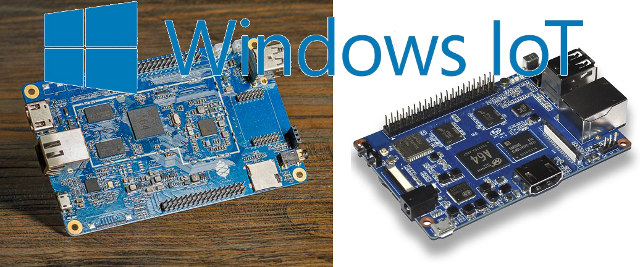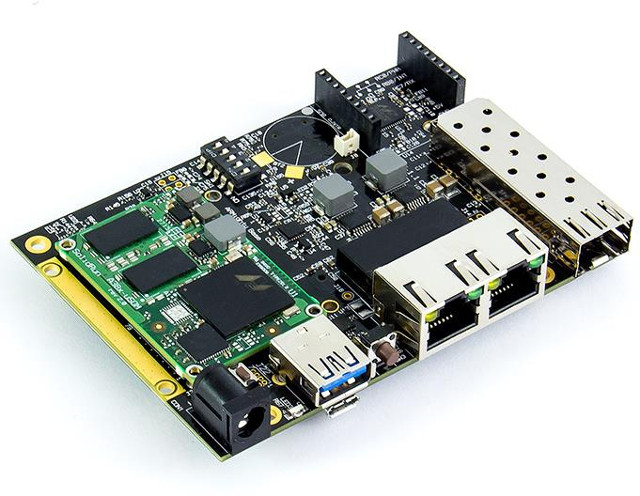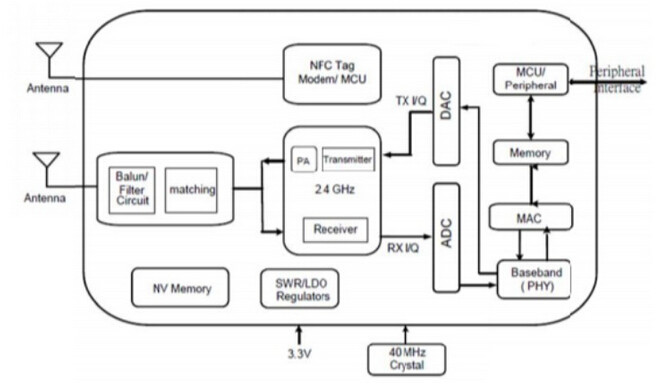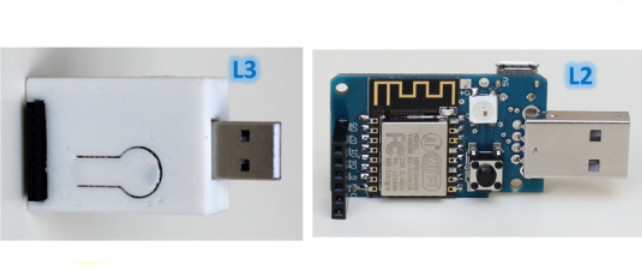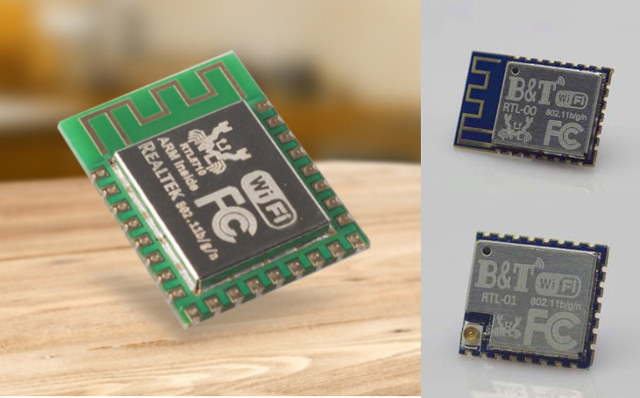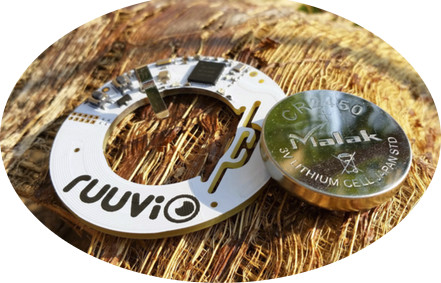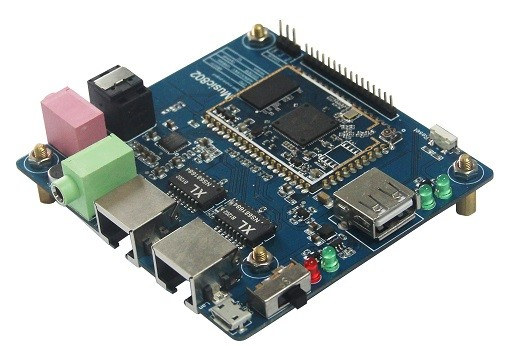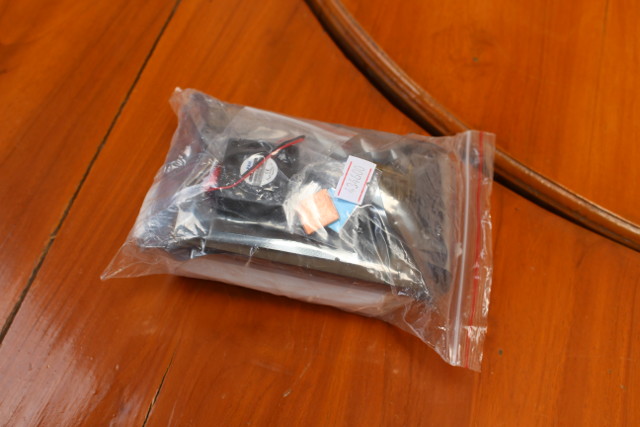Windows IoT is a version of Windows 10 that’s optimized for smaller devices with or without a display, and was fist released for Raspberry Pi 2 and MinnowBoard MAX. Since then a few more boards are now officially supported, including DragonBoard 410c, and Raspberry Pi 3. But there’s been some recent developments as two Allwinner A64 64-bit ARM boards are now supported according to two wiki entries (here and there) explaining how to run a simple Csharp sample on Windows 10 IoT Core on either Banana Pi M64 or Pine A64 boards. The guide shows how to configure Azure IoT Hub, register the IoT device, and build and deploy Azure IoT SDK on the board. But basically if all you want to is to run Windows IoT core on either board, you’ll need to download either: Windows 10 IoT Core for Banana Pi M64: Windows10IoT_BPI-M64.ffu (Link removed as Microsoft does […]
SolidRun ClearFog Base is a $90 Router/Networking Board with USB 3.0, M.2, mSATA, and Gigabit Ethernet Support
SolidRun introduced ClearFog Pro and Base board based on Marvell Armada 380/388 processor at the end of last year, but at the time, only the higher-end ClearFog Pro board was available for $170 and up. Now the company has officially launched the cheaper ClearFog Base board based on the same processor, two Gigabit Ethernet RJ45 ports, one SFP cage, a USB 3.0 port, an M.2 slot, mPCIe expansion slot, and more. ClearFog Base board specifications: Processor – Marvell ARMADA 388 (88F6828) dual core ARMv7 processor (Cortex A9 class) @ up to 1.6 GHz with 1MB L2 cache, NEON and FPU System Memory – 1GB RAM by default (2GB optional) Storage – 1x micro SD slot, optional 4GB eMMC flash, 1x M.2 slot, 1x mSATA/mPCIE Connectivity – 2x dedicated Gigabit Ethernet ports, 1x SFP cage USB – 1x USB 3.0 port Expansions 1x mini PCI Express slots (shared with mSATA ) 1x […]
Development Resources for Realtek “Ameba” RTL8710, RTL8711, and RTL8195 WiFi SoCs
We were made aware of a potential ARM based ESP8266 competitor last week with Realtek RTL8710 WiFi modules selling for about $3.5 shipped per unit, and under $2 per unit for larger orders (100+ pieces). Hardware is good, but for a platform to be successful, or even just useful, you also need software support. So I started doing some research into IoT-Tech BBS and asked ICStation for an “SDK” for the module they sold. I ended up on this forum post providing an “Realtek RTL8710 SDK” via Baidu (password: brwp), which turned out to be about the same as the Google Drive link provided by ICStation, and only contain minimal documents, as well as cracked Windows IAR Embedded Workshop and JLink tools. There are also some more technical details in Chinese only in another forum post, and well as B&T RTL8710 module datasheet (PDF). However, if you don’t read Chinese […]
vESPrino ESP8266 USB WiFi Dongle Supports Add-on Boards (Crowdfunding)
Last month, I wrote about WiThumb a USB WiFi adapter based on ESP8266 processor which can conveniently be plugged into any USB port for power and programming. However, the hardware design was questionable with the WiFi PCB antenna placed close to other components, and a temperature sensor likely to get pretty hot inside the case. There’s now another device based on a similar concept with vESPrino USB stick that also expose a few I/Os through its enclosure. ESPrino specifications: WiFi module – ESP-12 FCC & CE Certified module based on Espressif ESP8266 USB – 1x micro USB port, 1x USB port Expansion – 6-pin female header with 4 GPIOs, 5V and 3.3V Programming & debugging – Via USB through CH340G USB 2 Serial adapter Misc – Push button (GPIO0), WS2812b RGB LED (GPIO2), temperature sensor connected to ADC? (not visible on schematics) Power Supply – 5V through micro USB or […]
An Alternative to ESP8266? Realtek RTL8710 ARM Cortex-M3 WiFi IoT Modules Sell for $2 and Up
ESP8266 WiFi modules initially stormed the maker market for IoT applications thanks to their low price, and later it became the dominant WiFi IoT platform for hobbyists thanks to its large community of developers. But technology progresses over time, and it’s always fun to look out for new solutions, and Realtek RTL8710 could prove to be an interesting alternative with its ARM Cortex-M3 processor @ 166 MHz, a little more user memory (48KB), audio support, faster WiFi performance, while still keeping a low price, as modules can be purchased for $3.90 on ICS station, a little more on eBay, and as low as $1.95 per unit on Aliexpress including shipping if you purchase 100 pieces or more. A Chinese website as a side-by-side comparison between Realtek RTL8710 and Espressif ESP8266, which I also found translated into English. Realtek RTL8710 Espresif ESP8266 Package QFN-48 (6×6 mm) QFN-32 (5×5 mm) CPU ARM […]
RuuviTag Open Source Bluetooth & NFC Sensor Beacon is Based on Nordic Semi nRF52832 SoC (Crowdfunding)
I’ve recently featured Puck.js Bluetooth 4.2/5.0 Beacon on CNX Software, but there’s another similar option with RuuviTag, also powered by the latest Nordic Semi nRF52832 ARM Cortex-M4 SoC, and RuviiTag+ version that includes multiple sensors: 3-axis accelerometer, and temperature, humidity, and pressure sensor. RuuviTag & RuuviTag+ specifications: SoC – Nordic Semi nRF52832 ARM Cortex-M4F micro-controller @ 64 MHz with Bluetooth Smart and NFC Connectivity Bluetooth 4.2 Smart, Bluetooth 5.0 Ready; over 500 meters line of sight range (with -4dBm power); up to 1.4 km with +4 dBm Integrated NFC antenna Expansion – 8x through holes with 6x GPIOs, and 2x power signals Sensors On-chip temperature sensor RuuviTag+ – Bosch BME280 environmental sensor (pressure, humidity, and temperature), STMicro LIS2DH12 3-axis accelerometer Misc – User/reset button, 2x LEDs, 10-pin SWD debug connector Battery – CR2450 / CR2477 battery up to 10 years depending on application Dimensions – N/A Temperature Range – -40°C […]
Music802 Linux Audio & IoT Board is Powered by Atheros AR9331 SoC (Crowdfunding)
When Link Card evaluated processors for a Linux audio IoT board, they considered candidates like Allwinner H3 and Ralink RT5350, but eventually went with Atheros AR9331 due to cost, simplicity, features, and power consumption reasons for their Music802 board based on LC930 system-on-module. Music802 board specifications: SoC – Atheros AR9331 MIPS 24K WiSoC @ 400 MHz System Memory – 64MB DDR2 Storage – 16MB SPI Flash Audio – Cirrus Logic WM8960 Codec; 2x 3.5 mm jacks for Line IN and headphone; optical S/PDIF output; on-board microphone Connectivity – 2x 10/100M Ethernet ports (WAN & LAN), 802.11 b/g/n WiFi with 1x IPEX antenna connector USB – 1x USB 2.0 host, 1x micro USB port for power only Debugging – 3-pin 2.54mm pitch header for serial console Expansion – 16-pin 2.0mm pitch header for GPIO, UART, I2C, etc.. Misc – Power, system, and 2x user LEDs, 1x reset button, 1x power switch […]
Raspberry Pi Club Battery / UPS Kit Assembly Guide and Review
A couple of months ago, I wrote about a Raspberry Pi battery kit with a 3,800 mAh battery, a battery control board, an acrylic enclosure, and an heatsink + fan set that I found on DealExtreme for about $22. I decided to buy it once I got confirmation the battery was included, and so today I’ll write about my experience assembling the kit, and running it with a Raspberry Pi 2 board. If you are only interested in the “RPi PowerPack” battery control board and battery, you can find them on Banggood for $11.93. Raspberry Pi Club Battery Kit Unboxing DX put all the accessories inside a zip bag, and shipped it in a bubble envelop. It contains a white box with the RPi PowerPack V1.0 battery and battery, several screws, spacers, and bolts sets, a fan with screws, an acrylic case with three layers, an heatsink set with two […]


